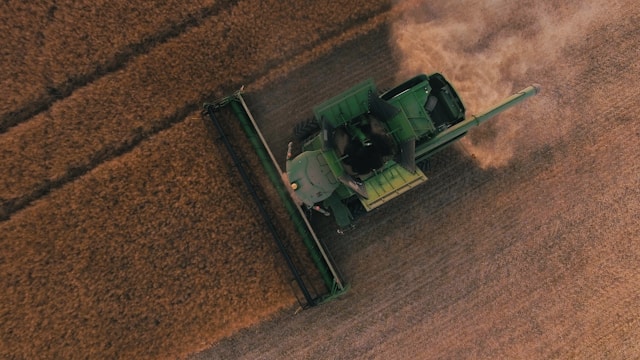How to practice scales with Practice.farm
Learn how to use Practice.farm's playlist feature to make scale practice more engaging and fun.
How to practice scales with Practice.farm
Practicing scales is essential, but it requires some creativity to keep it engaging and fun. It can be tedious to systematically play the same scale exercise in every key day after day. As a result, many players avoid scale practice and stick to comfortable keys.
Practice.farm addresses this problem by turning scale practice into a more varied experience. Here's how to use Anton Slama's 66 Etudes to reach new levels of scale fluency:
Setting up your range
- Open the Settings panel and set your Range to cover at least 2 octaves
- Select "Random Selection" at the bottom of the Range settings
This ensures you'll encounter scales in different registers and keys unpredictably, preventing you from getting stuck in familiar patterns.
Creating your scale practice playlist
- Click Library, then Playlists, then New Playlist
- Click Add Exercises
- Open Anton Slama - 66 Etudes
- Add selected Slama etudes to the playlist
Recommended Slama etudes for scale practice
Choose etudes that feature straightforward scale and arpeggio passages. Here are good options at various difficulty levels:
Beginner/Intermediate: 1, 6, 11 Intermediate/Advanced: 2, 3, 25, 26, 30, 36, 43, 49, 55, 59, 63, 65
If you're a beginner, start with just the first few etudes and gradually add more challenging ones as your technique develops.
How it works
Once your playlist is set up with "Random Selection" enabled:
- Each etude appears in a different key and register
- You never know which key is coming next, keeping your mind engaged
- The musical context makes scale practice more interesting than drilling patterns
- You develop reading skills alongside technical facility
Benefits of this approach
- Prevents boredom by varying the musical material
- Builds familiarity with all keys rather than just comfortable ones
- Develops pattern recognition through musical context
- Improves sight-reading of scalar passages
- Creates a game-like challenge that maintains interest
This method transforms routine scale practice into an engaging musical experience while systematically building your technical facility across all keys.
Continue mastering technique:
- Improve your accuracy with interval studies - Build fundamental skills for scale mastery
- Master arpeggios with Circle of Fifths - Apply systematic practice to arpeggios
- Why your brain craves random practice - The science behind varied practice
Ready to transform your scale practice? Check out Practice.farm's features or explore how intelligent transposition makes scale practice more effective.
About the Author

Nick Mahon
Founder & Creator of Practice.farm
Nick Mahon has been a member of the Orchestre Symphonique de Québec since September 2013 and was appointed principal trombone in 2016. He performed as soloist with the OSQ in 2017, playing the Albrechtsberger Concerto for alto trombone. In 2019, he joined the faculty of the Conservatoire de musique du Québec as professor of trombone.
A native of London, Ontario, Nick studied music performance at the University of Toronto. His festival experience includes the Tanglewood Music Centre and Music Academy of the West. He has performed with the Hong Kong Philharmonic, Toronto Symphony Orchestra, Canadian Opera Company, and numerous other Canadian orchestras, and was a multiple prize winner at the 2011 Orchestre symphonique de Montréal competition.
Drawing on nearly 20 years of software development experience, Nick created Practice.farm in 2025. What started as a personal practice tool evolved into a resource he shared with his students at the Conservatoire. Practice.farm has since grown into a comprehensive practice application serving musicians around the world.
To learn more about Nick's development work, visit his portfolio website.



